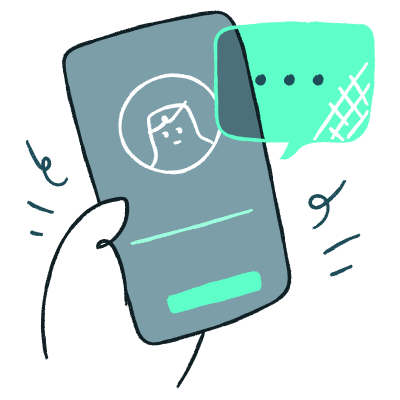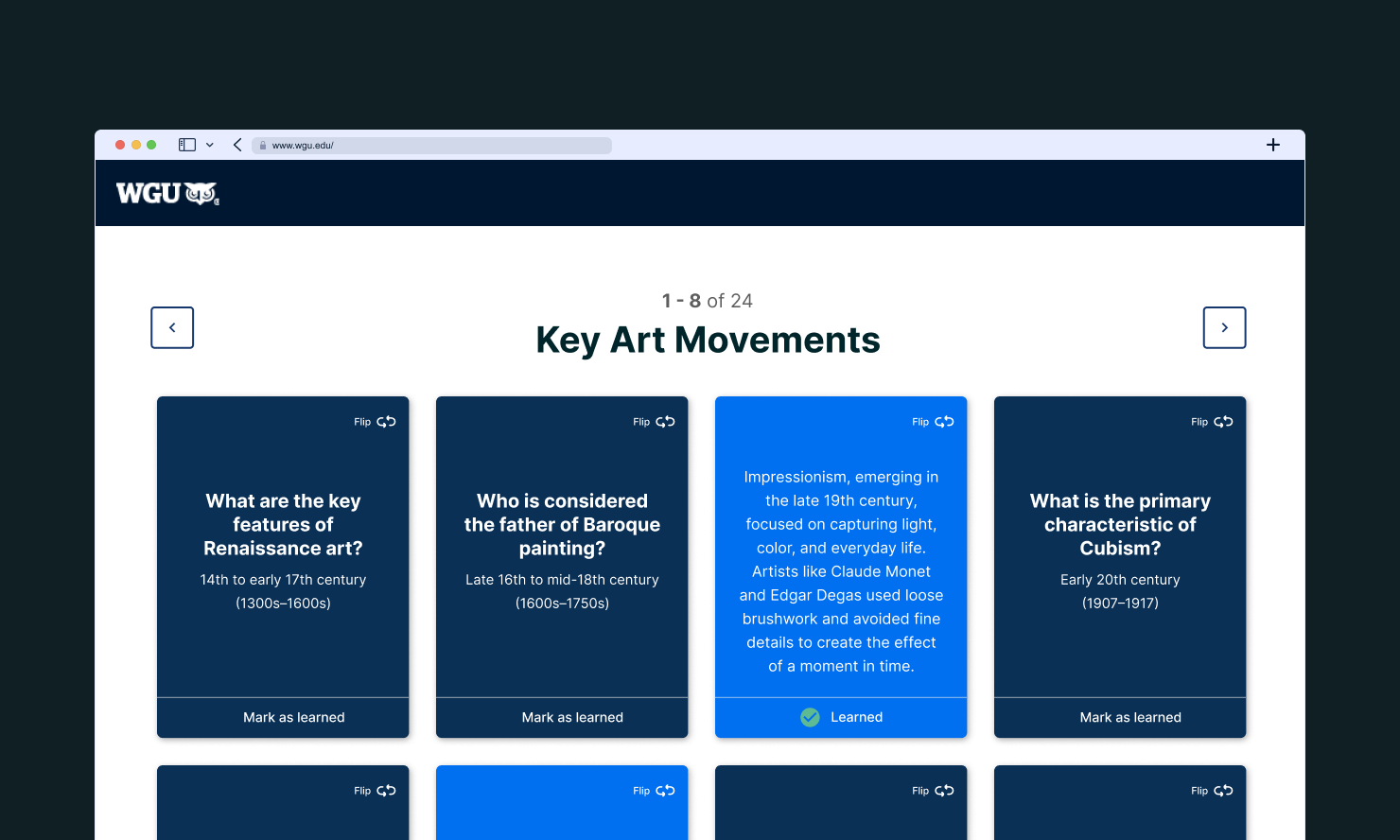

The U.S. governors who founded WGU knew that college students of the 21st century would be very different from students in the past. For millions of working adults, the dream of pursuing a college education could only become a reality once the boundaries of time and place are removed. Overcoming this challenge was at the heart of the WGU idea. WGU’s founders recognized that technology could be used to revolutionize the way students learn, master concepts, and progress to a degree.
As a nonprofit online university, WGU exists to ensure that the promise of higher education is made real for more individuals. And, the numbers speak for themselves:

WGU needed a partner who could quickly build a series of XBlocks for their own use but also for public use - that is, as contributions to the Open edX® ecosystem. As part of their RFP process, WGU asked some tough questions to vet their Open edX® partner. Below are questions from their RFP and the answers OpenCraft was able to provide.

Since Open edX®’s release in March 2013, XBlocks were one of the first things our founder, Xavier Antoviaque worked on. His first contribution was the XBlock tutorial, and the mentoring XBlock made for Harvard was the first XBlock to be used in a live course. OpenCraft continues to build a wide range of XBlocks for Open edX® including Accredible Xblock, Active Table, Cohort Manager and Kinescope Video.
OpenCraft played a pivotal role in designing and implementing Blockstore, and is extensively involved in the learning-core project, which replaced the Blockstore project. Our team also has extensive experience building various micro-frontends to ensure a cohesive user experience.
OpenCraft was able to highlight their experience designing and implementing custom themes for multiple clients’ Open edX® instances that both align with clients’ branding and improve user experience. Our unique process involves:
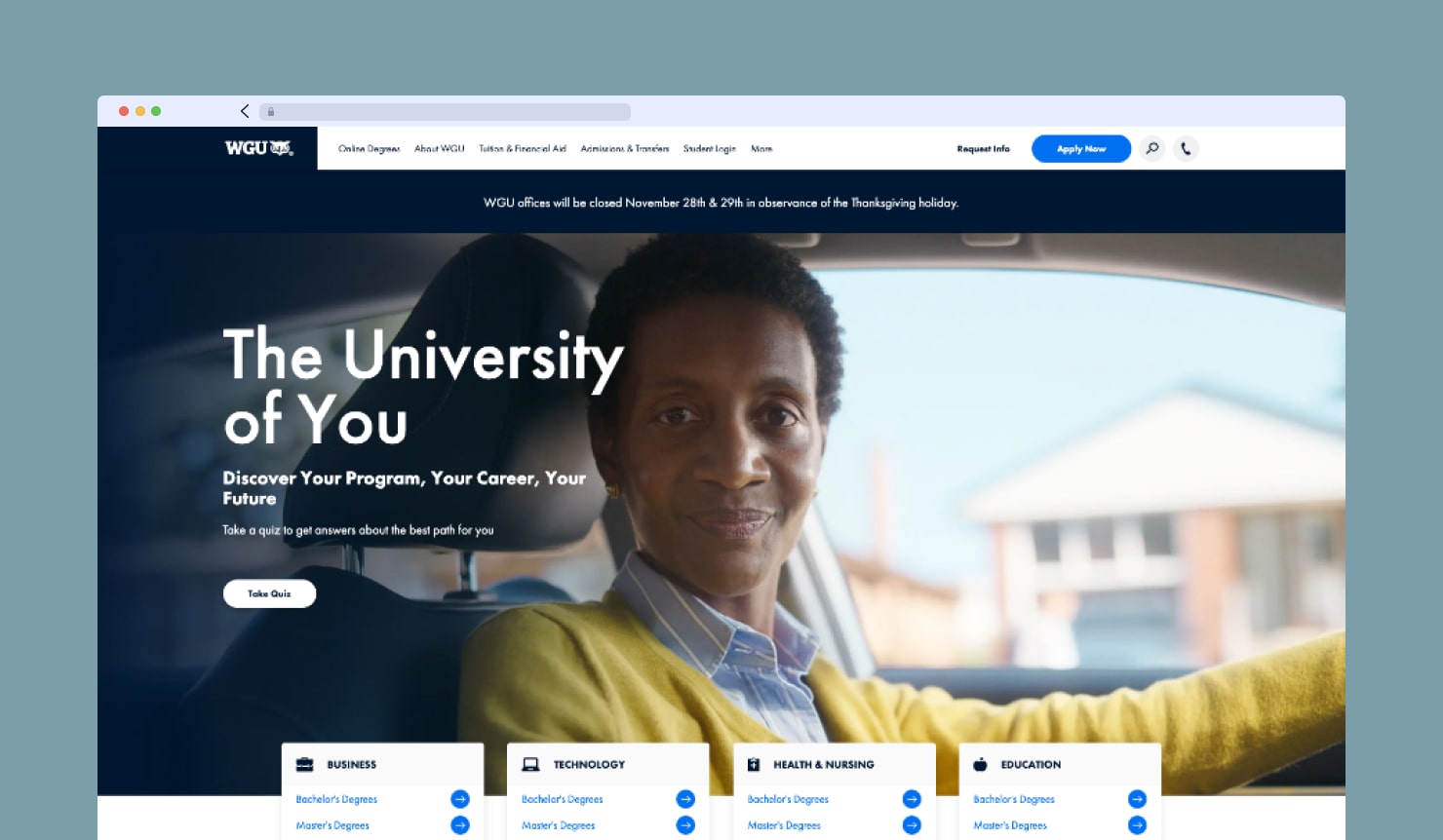
We have created several XBlocks which have a staff authoring component. We also contribute heavily to the Open edX® Aspects project, which provides data for administrators to use in evaluating the effectiveness of their team and learners.
We’ve also built several plugins for the platform including the custom authentication form plugin, section to course plugin, and Redis-based event bus.
In addition, we’ve built Grove, an orchestration tool for deploying and configuring several instances of the platform on one Kubernetes cluster.
The table below outlines the roles and responsibilities of OpenCraft and our clients in the development of a typical Open edX® project.
Software is required to be accompanied by automated tests and undergo peer code review and peer manual testing before being merged and provided to the client for verification and sign-off.
As part of our standard procedure, we provide accompanying documentation with all development work. Upon request, we can provide training sessions at our billable hourly rate.
We ensure that all new XBlocks we develop adhere to WCAG 2.0 as per the Open edX® accessibility guidelines.
OpenCraft’s team consists of maintainers and core-committers to various Open edX® repositories, and actively participates in design decisions. OpenCraft is known for its technical expertise and its commitment to the Open edX® project, making significant contributions to the platform's development and ecosystem.

Western Governors University wanted OpenCraft to build a series of XBlocks that added native support to features that weren’t available on the platform. The capabilities were made not only for their own use, but also public use as contributions to the ecosystem. They knew the value to themselves and the educational community of “upstreaming” the solutions developed for them.
Some of the upstreamed XBlocks were coding/short answer problems with AI feedback with the ability to integrate with multiple AI models, interactive timelines, accordion type problems, etc. The development of each XBlock included discovery, UX/UI work and implementation tasks. They included:

Gives students the option to have course content read out loud to them.
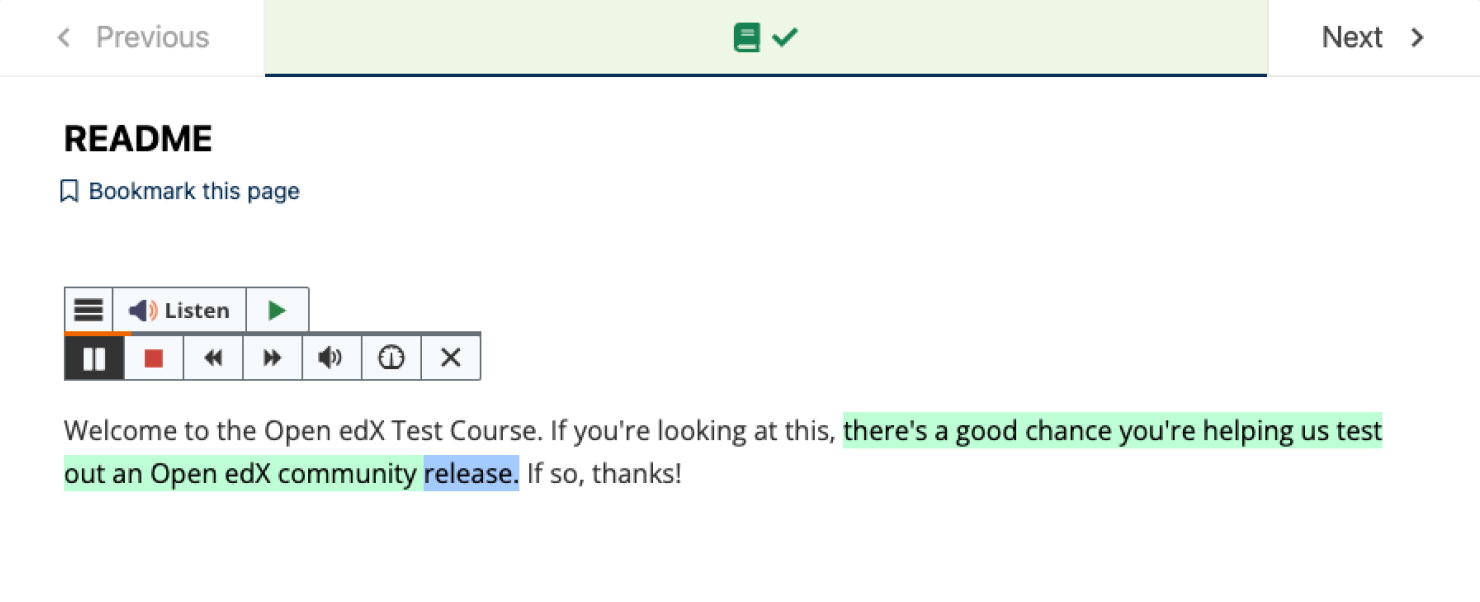
Allows course staff to create flashcard activities for students to use as a learning tool. Up to 8 cards can be shown on the screen at once. Features include text or images on both sides, flip animation, and optional sound effects.
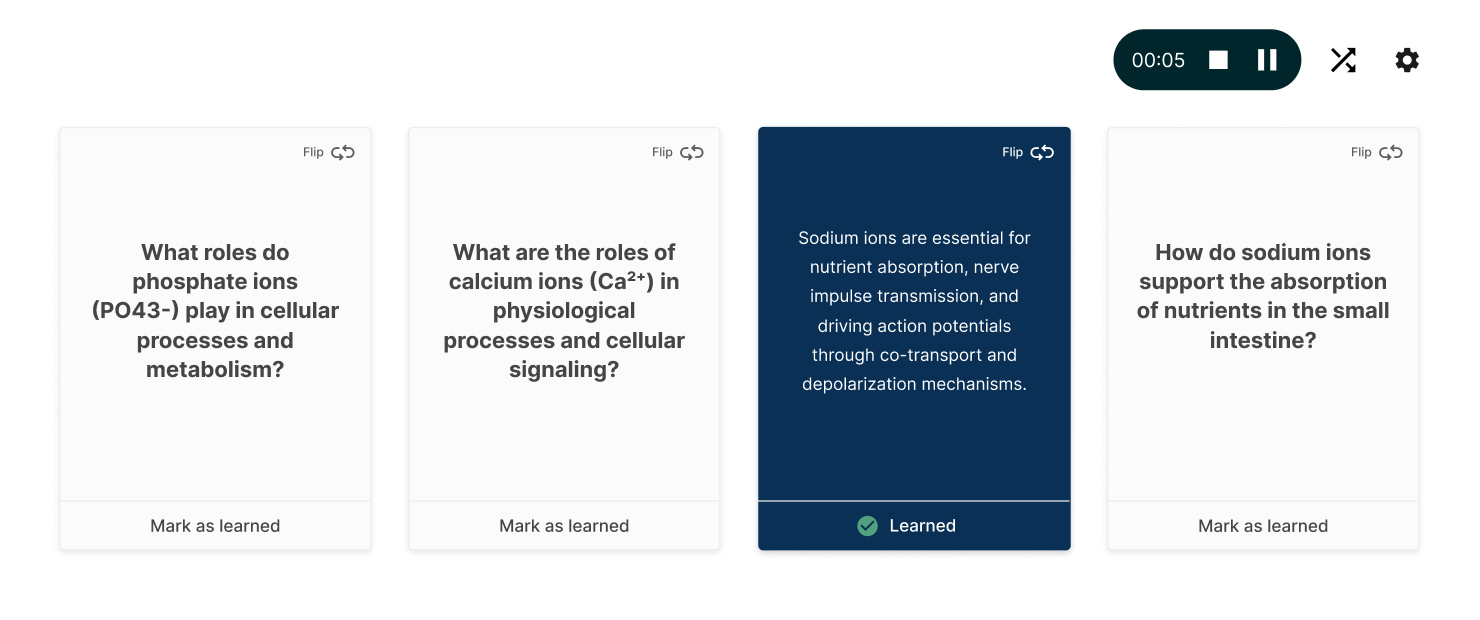
Gives course staff the ability to add dates and events to a timeline. Students can zoom in and out of the timeline, move backwards/forwards in time, and select individual entries to see more detail.
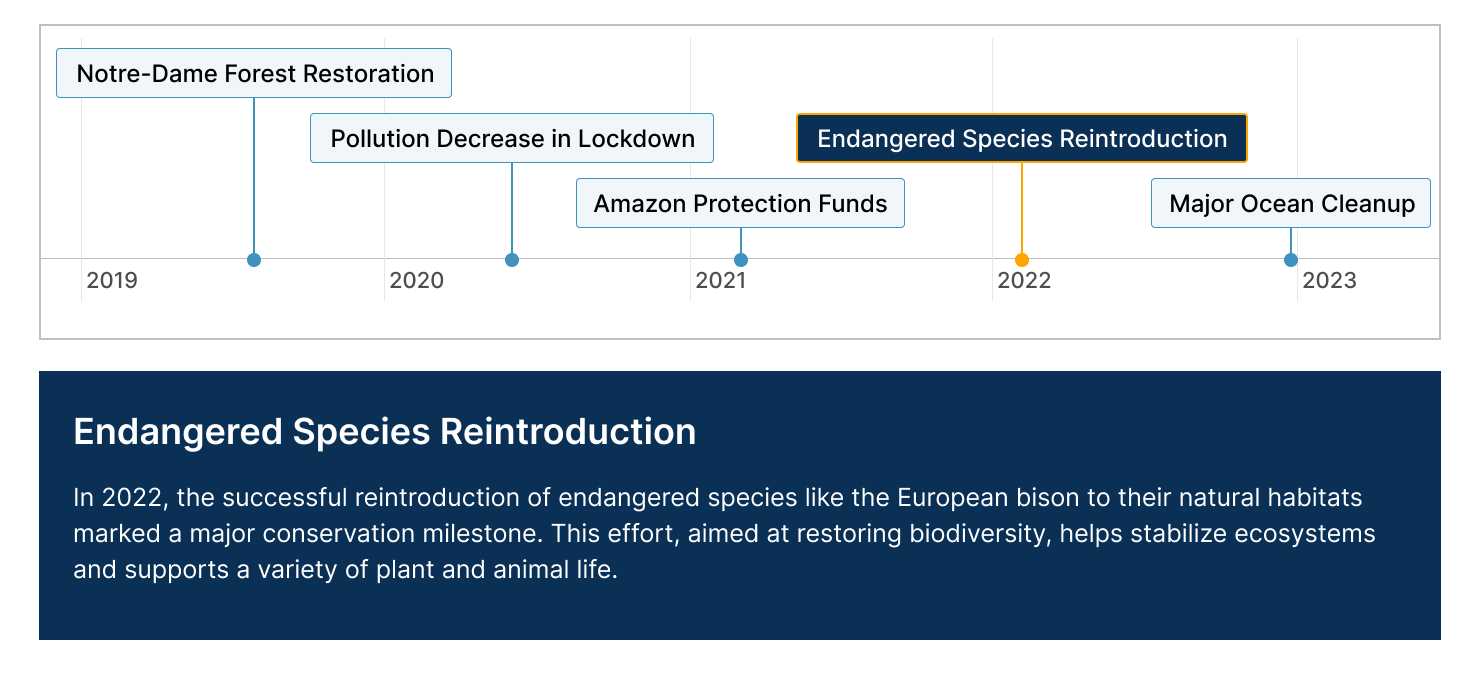
Gives students a space to write and run basic coding scripts with AI-powered feedback. The XBlock sends the code to an LLM, which reviews the code and offers improvement suggestions.
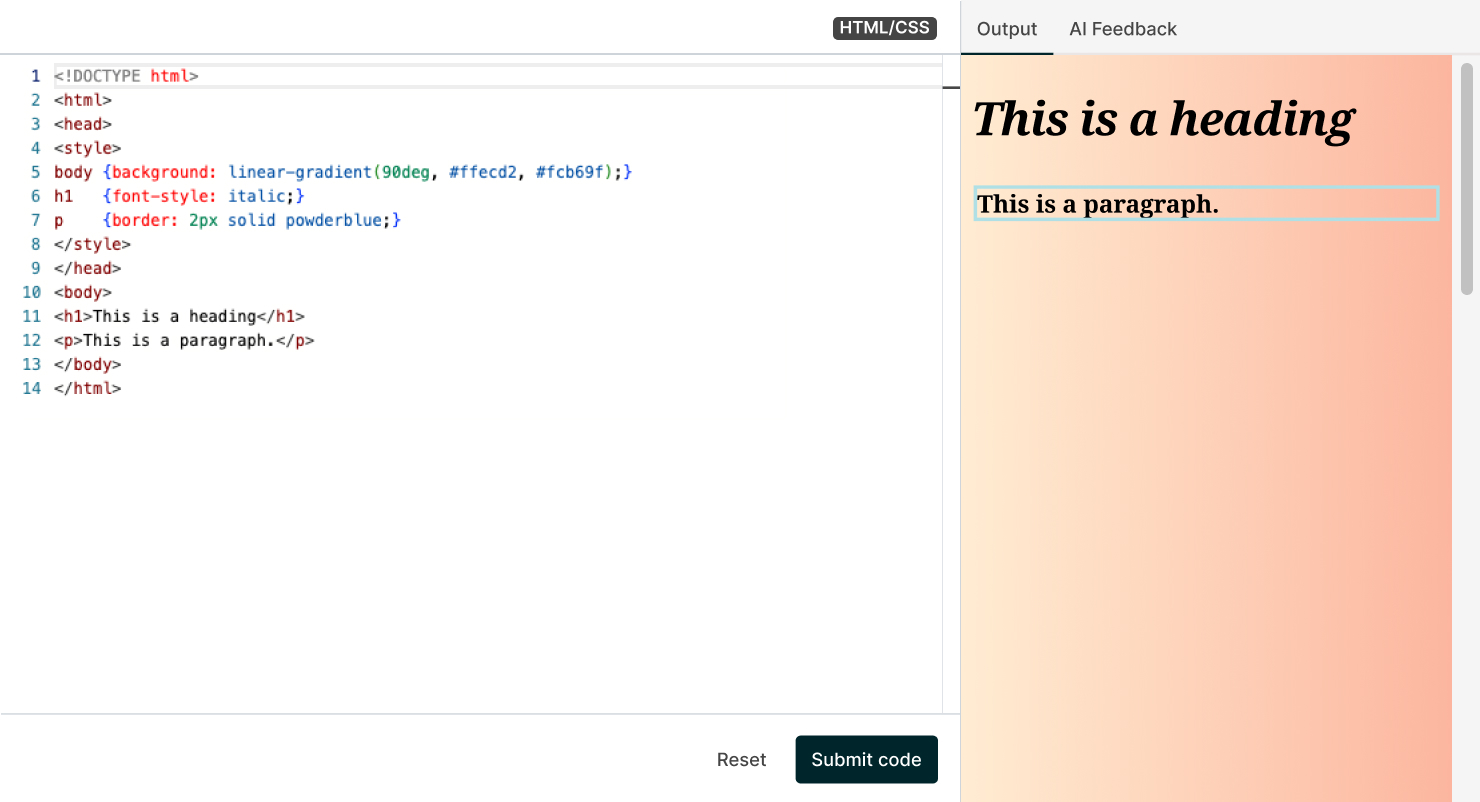
Allows students to write short text entries and receive AI-driven feedback. The XBlock sends the response to an LLM, which reviews the submission and provides improvement suggestions based on a prompt from the course author.
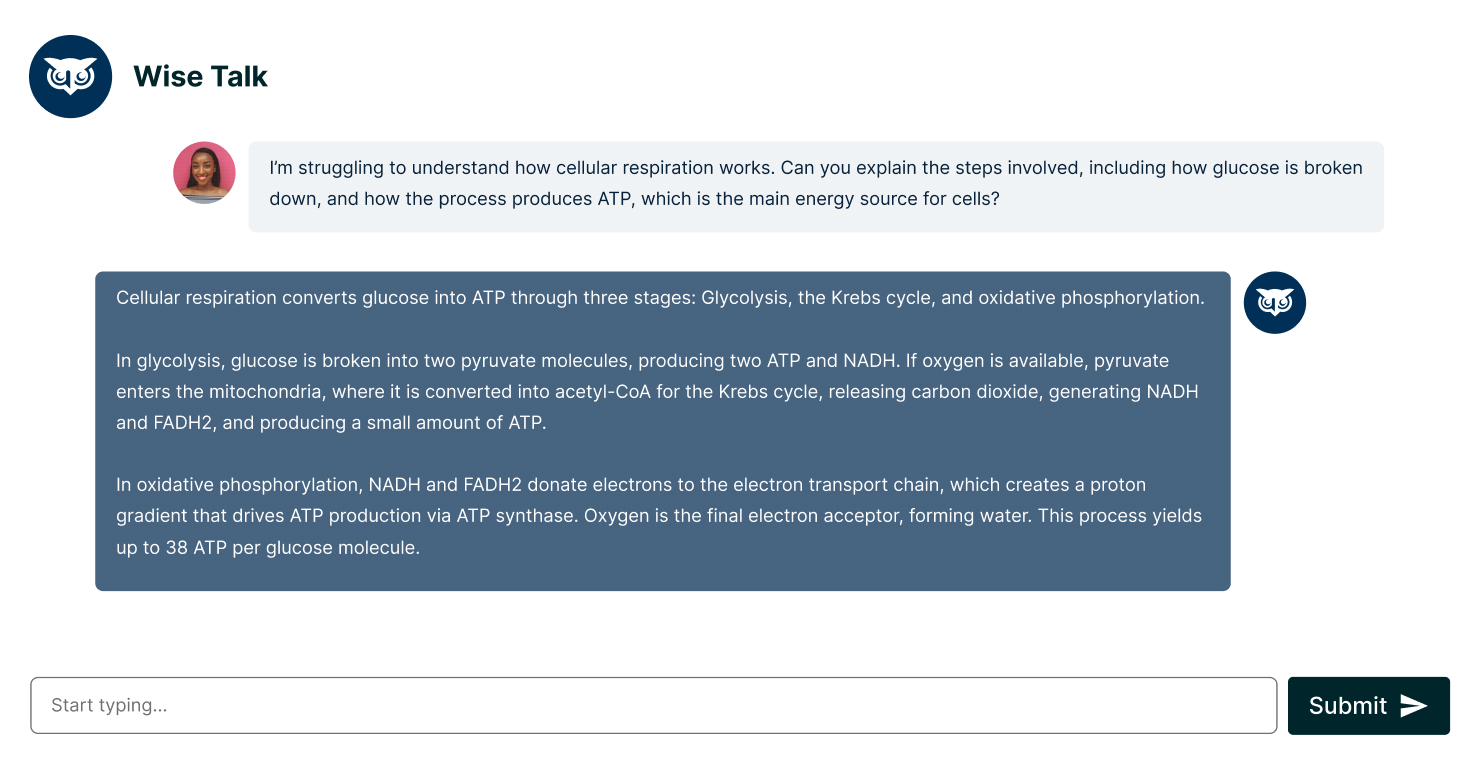
Allows course staff to select multiple problems and have them display to the student one at a time in a single window, with an option for students to reset and start again with a new set of randomized problems.
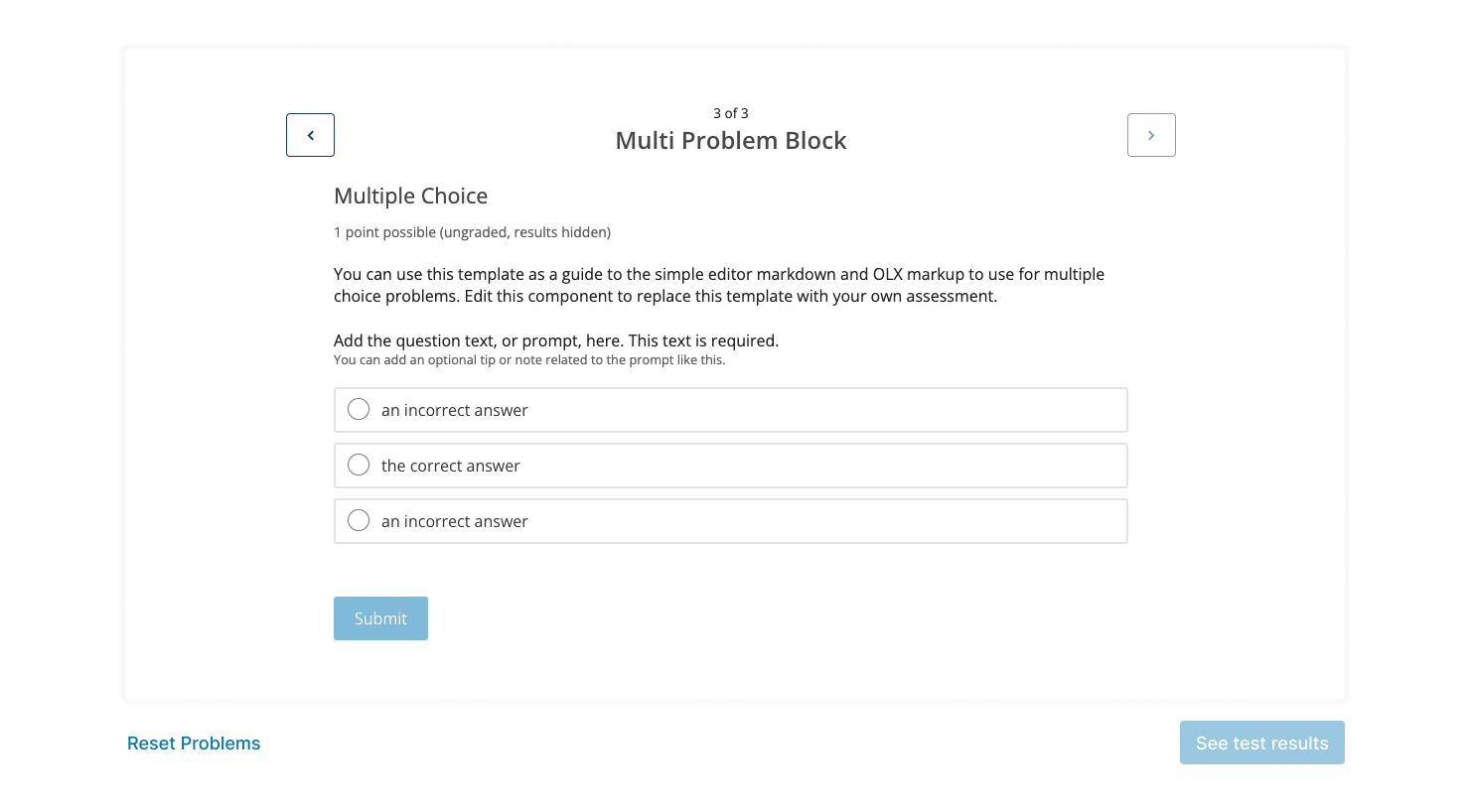
Gives course staff the ability to add accordions to a Unit, allowing students to open and close multiple sections of text, images, or links as they choose.
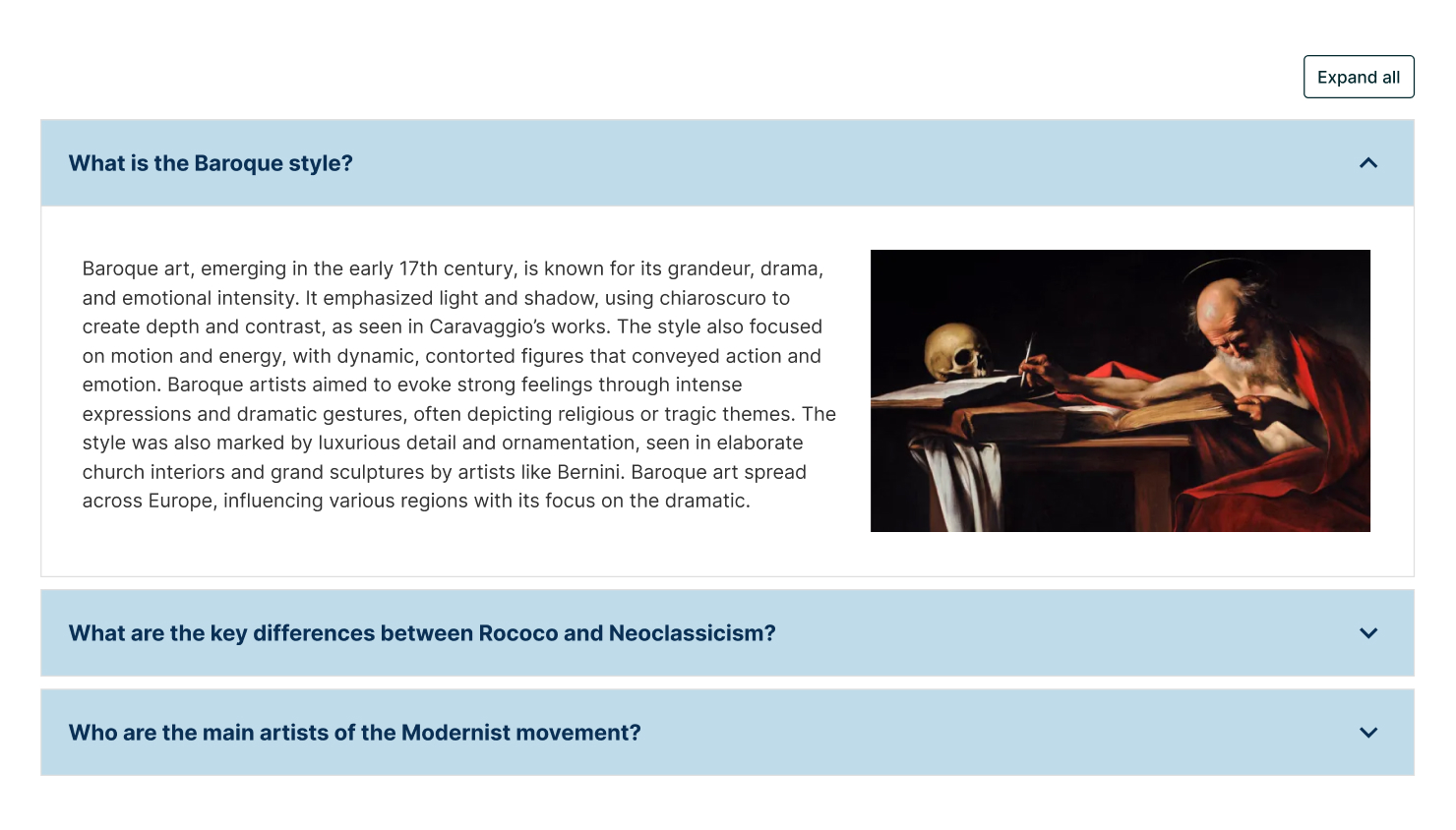
Allows course staff to embed multi-page documents in a Unit. Documents include PDFs, MS Office files (Excel, Word, Powerpoint), Google files (Docs, Sheets, Slides), and Mac files (Pages, Numbers, Keynote).
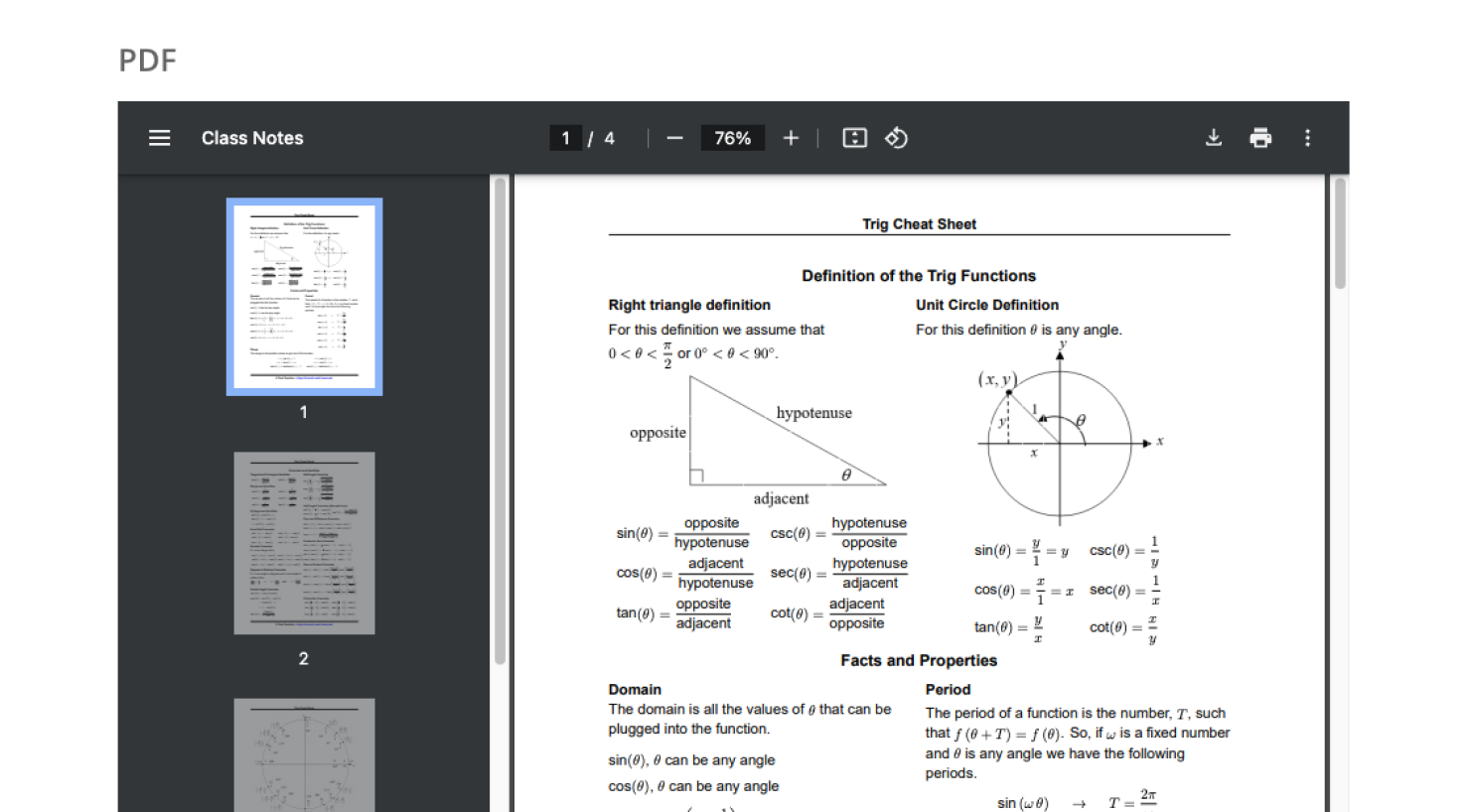
Allows course staff to embed podcasts and their transcripts from third-party sources in a Unit.

In OpenCraft, WGU found an Open edX® partner who provided a solution that met the highest standards of excellence and delivery in record time. The result: further support of WGU’s goal of providing the most innovative online curriculum to help students as well as the broader Open edX® community.
* XBlocks are modular components in Open edX® that enhance interactivity and engagement in online courses, offering unparalleled customization options, allowing for interactive quizzes, discussions, and simulations.
